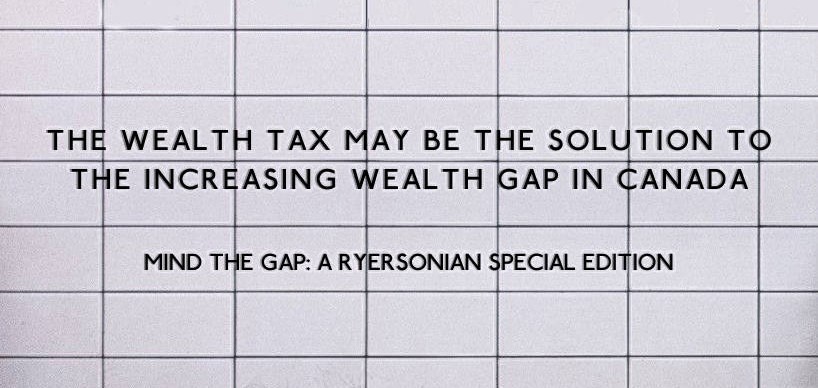A proposed tax on significant wealth could even the playing field, or increase the burden on everyone else

Wealth inequality is growing at an extreme rate in Canada. One policy tool to slow down the increase in inequality is to implement a wealth tax.
The Parliamentary Budget Office reported that in 2016, the top one per cent of the richest owned 25.6 per cent of wealth while the bottom 40 per cent only own 1.2 per cent of the wealth in Canada.
Keeping a focus on those at the high end of wealth, the New Democratic Party (NDP) released a statement that proposed a one per cent annual tax on wealth over $20 million.
In an email statement, Nina Amrov, press secretary to the leader of the NDP, Jagmeet Singh, said “Canada’s richest CEOs earn more than 200 times the average income of Canadian workers and the super-rich are hiding more than $300 billion in tax havens every year.”
“Those at the top have no idea what life is like for most Canadian families,” said Amrov.
The ballooning of billionaire wealth has continued during the pandemic. Peter Julian, an NDP finance critic, stated that “billionaires have gotten $37 billion in new wealth and banks have gotten $750 billion in liquidity support.”

A study by The Broadbent Institute reported that “extreme inequality of wealth can be resisted and reversed only through conscious political action.”
The Broadbent Institute also reported that most Canadians agree that “additional sources of revenue are needed to fund a pandemic recovery program” and “ensure that the burden of the pandemic is fairly shared” through a progressive tax reform.
However, a change in the tax policy may not resonate well with all Canadians. A study by The Fraser Institute said that Canadians are already taxed heavily through property and income taxes and that a wealth tax may be redundant and punitive.
Jasmine Moulton, Ontario director of Canadian Taxpayers Federation, is opposed to a wealth tax in Canada. Moulton feels that a wealth tax is not a serious solution to fix Canada’s finances.
Moulton points out that when a wealth tax had been implemented in European countries, it was difficult to administer, brought in lower than expected revenues and caused an exodus of high-net-worth individuals to leave the country. The exodus caused an increase in the tax burden for everyone else.
Even with its complexities and its challenges for planning and enforcement, a wealth tax needs to be examined seriously as a policy tool.
An important strategy in raising more revenue is to increase the tax rate on capital gains.
“Income from capital gains is very highly concentrated at the highest end of the income spectrum and would help reduce inequality,” said Alex Hemingway, economist and public finance policy analyst at the Canadian Centre for Policy Alternatives.
Sylvie Trottier, a member of Resource Movement, said that the funds raised from a wealth tax can be used for programs that are desperately needed. Trottier said we decide what the priorities are together as a democracy. Although a wealth tax on its own cannot fund absolutely everything, Trottier mentions that it can be used as a tool to get to the root cause of inequality.
Working in collaboration with Canadians for Tax Fairness and other agencies, Trottier is advocating for a wealth tax and an inheritance tax to establish fiscal justice in Canada.
“The pandemic has brought so many issues to light in a way that many haven’t seen before, whether that is inequality, whether that is how we treat our elders in our society, whether it’s about racial justice. These are all things that many have been fighting for, for a long time,” said Trottier.
This article may have been created with the use of AI tools such as
